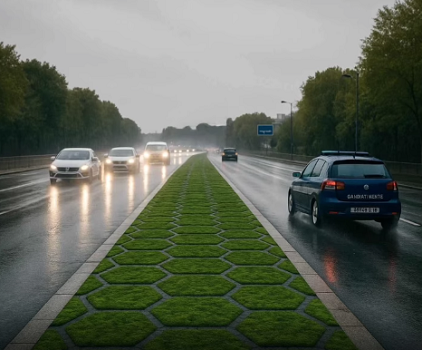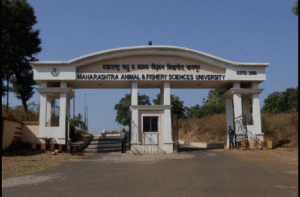In a groundbreaking move to tackle urban air pollution, especially from vehicle emissions and the fine particulate matter known as “tire dust,” France has reportedly begun integrating moss-tile technology into its highway and high-traffic road infrastructure.
The innovative project utilizes specially cultivated mosses, known for their exceptional natural air-filtering capabilities, embedded within modular tiles or panels installed along busy roadways. This bio-filtration system is designed to passively “eat” pollutants directly from the urban air, offering a sustainable, low-energy solution to a growing environmental crisis.
While much attention has been paid to tailpipe emissions, a significant and often overlooked source of urban air pollution is tire and brake dust—fine particulate matter that is kicked up and circulated by traffic. This dust contains harmful heavy metals and rubber compounds, posing a major health risk.
Mosses, with their large surface area and unique biological structure, naturally trap and metabolize these airborne particles, including the dangerous and fine dust, as well as nitrogen oxides ().
The French initiative draws on established green-tech concepts, such as the German-developed “CityTree” vertical moss walls, but adapts the technology for the high-volume environment of a highway. The moss tiles are equipped with intelligent, automated systems for irrigation and nutrient supply, ensuring the moss cultures remain healthy and at peak filtration efficiency, even in the harsh conditions of a roadside environment.
Early pilot data suggests the moss-tile installations can purify an enormous volume of air, providing a localized, impactful reduction in pollutant concentrations right where people are most exposed—near busy traffic corridors.
If the pilot phase proves successful, this revolutionary use of bio-technology could be scaled up across the national road network, transforming thousands of kilometers of concrete and asphalt into vast, natural air purifiers. It marks a significant step in France’s commitment to improving air quality in metropolitan areas and achieving ambitious climate goals.
“This is about re-imagining our infrastructure not just as pathways for transport, but as active tools for environmental remediation,” commented an unnamed official familiar with the project. “Nature has provided the filter; we’ve simply created the framework to deploy it on a massive, strategic scale.”
The project is currently under monitoring, with environmental scientists eagerly awaiting long-term data on the moss-tiles’ efficiency, durability, and cost-effectiveness compared to traditional air quality measures.







